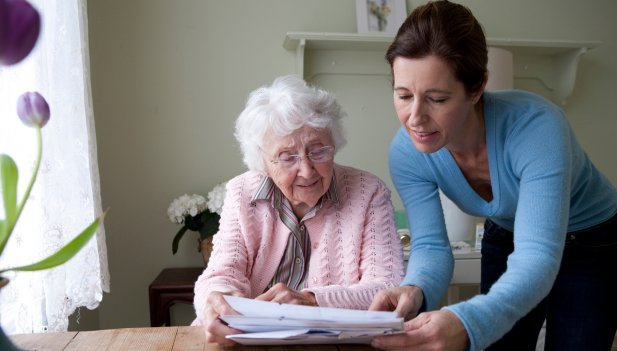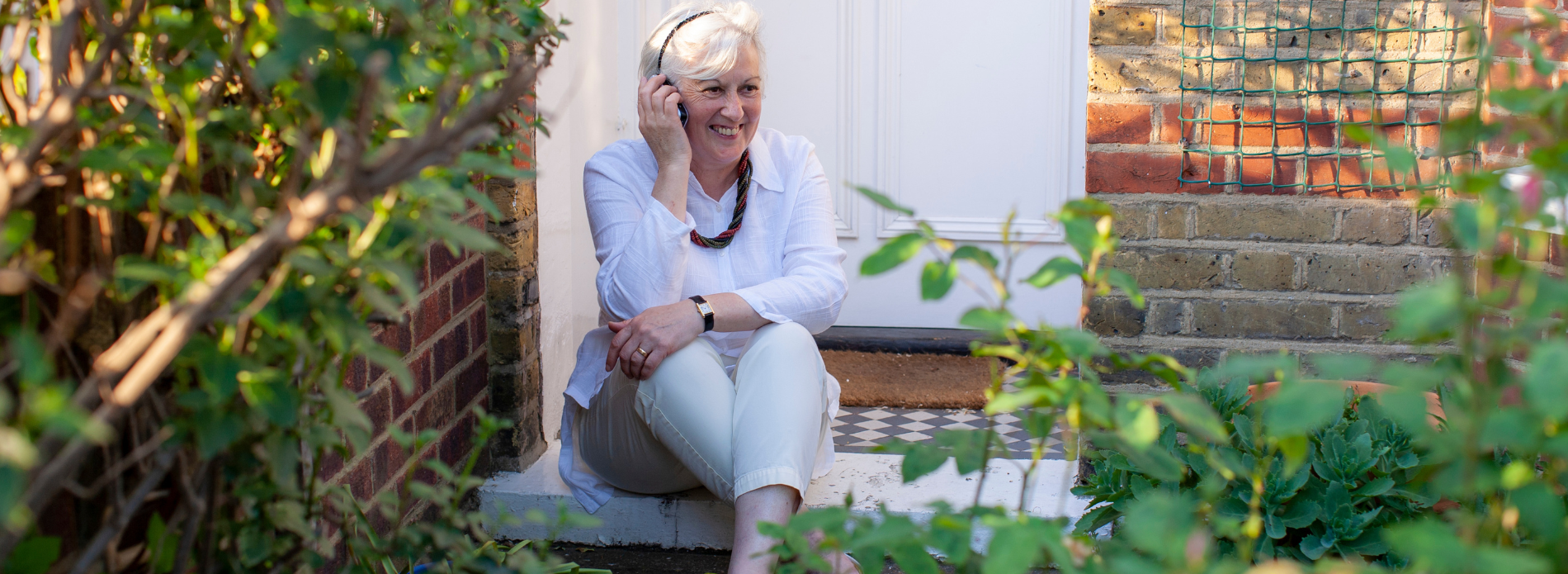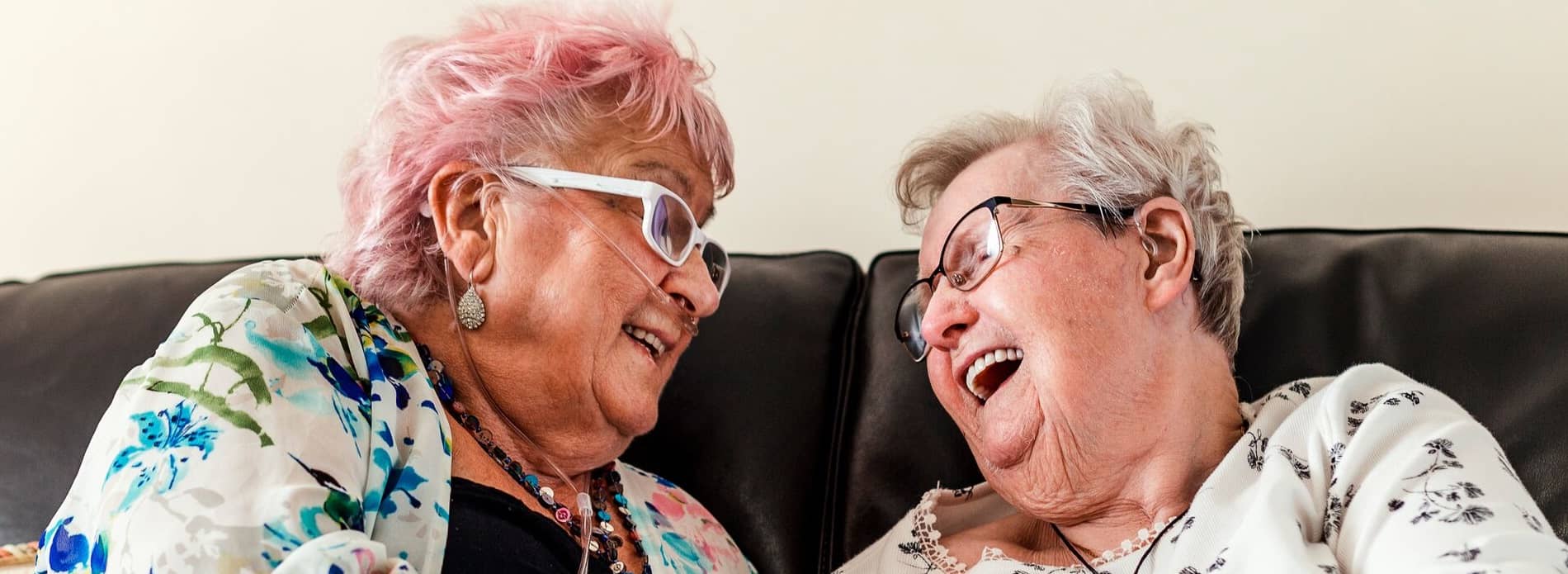The sandwich generation refers to a group of people, typically middle-aged adults, who find themselves ‘sandwiched’ between caring for their ageing parents and supporting their own children. This is largely a result of life expectancy rising and more people starting families later in life.
Sandwich caregiving can also refer to looking after other older relatives, ageing friends, siblings, partner, grandchildren, etc. – with the core idea representing the responsibility and strain of having overlapping caring responsibilities.
Office for National Statistics research1, published in 2023, said about 1.4 million people in the UK were acting as sandwich carers over the previous two years, based on an Understanding Society study.
Often balancing the emotional, physical and financial demands of caring for both generations at the same time, it can come at a cost to health, wellbeing, finances and in many cases – career. This impact is also not felt equally, with women more likely to care and take on a larger responsibility for care2. These responsibilities also come at a time when most sandwich carers are still working, and likely to be experiencing health challenges themselves as they age.
Researchers at UCL have discovered a deterioration in both the mental and physical health of sandwich carers over time – especially those dedicating over 20 hours per week to caregiving3.
Considering these statistics, and that 65% of people in the UK are likely to provide care in their adult life2, the question that needs to be asked is, who’s looking after the sandwich generation?
“You don’t realise its impact until you experience it.”
“As much as it might be in the back of your mind, nothing quite prepares you for the reality of dual caring responsibilities,” explains Jess, mum to three teenage boys, caregiver to her 86-year-old-mum and caregiver to her late father, who suffered from dementia.
“You don’t realise its impact until you and your contemporaries experience it. Your headspace, energy, finances… the emotional process of going through a caregiver role reversal. It’s also the choices you need to make. Choices are agony as you’re always questioning whether it’s the right thing to do.”
The health and wellbeing impact
The realities of role strain, financial worries, fear of making the wrong caregiving decisions, limited personal time and lack of energy can all bubble up in different ways. It’s important to know that feeling overstretched, overwhelmed, stressed, worried, frustrated, upset, guilty – even angry – is understandable, normal and valid.
However, bottling up these emotions can feel easier in the moment but can backfire over time – impacting your physical and mental health, behaviour and relationships. Increased muscle tension, headaches, stomach issues, high blood pressure, heightened anxiety, sadness, irritability, miscommunication, strain with friends, family and colleagues (to name a few).
The financial squeeze
Even with NHS support, direct care costs such as funding for care homes, respite care, medical expenses, home adaptations, assistive devices and specialised equipment often falls on the family (and this doesn’t factor in the cost of raising children at the same time).
Carers UK research found that more than 600 people quit work to look after older and disabled relatives every day, with 1 in 7 of the UK workforce caring for a loved one4.
Research1 also suggests that people caring for both children and older relatives are more likely to report financial problems as well as an inability to work as much as they wanted – some reducing their working hours or taking career breaks to provide care.
This lost income can deplete retirement savings, with some even resorting to dipping into their retirement fund to cover costs. Career progression can also be affected, hindering salary increase and pension contributions.
“Most people I speak to have no idea whether they’ll be needing to pay for or topping up their parent/s’ care,” comments Jess. “The cost of my dad’s care home was eye-watering. Luckily his personal funds covered it (just about) but if they’d run out, the council would have had to have stepped in. But this might have meant changing care homes as councils only cover a certain amount. It wouldn’t have been good for my dad uprooting him from where he’d settled.”
“It’s also worth knowing that you’re not legally obliged to pay for your parent/s’ care expenses (home help or a care home). The responsibility ultimately rests with your loved one, unless you’ve signed a contract with their care home saying you’ll pay. There are ways you can help with your loved one’s care fees, such as through a top up fee, but again, you aren’t obliged to do so.”
Lottie – a free service that helps families and retirees find the UK's best care homes and retirement living communities – goes into the finer details around care home funding, top up fees, selling a property and more.
How to get support

Being a carer can be tough and can impact your life in so many ways. It’s important to reach out for both personal and practical support.
Organise a carer’s assessment
The first step to getting extra support is to arrange a carer’s assessment with your local council, which looks at what support you need and how they could help.
Find your local council on gov.uk
To access support services, you must be assessed. You can get a carer's assessment regardless of whether the person you care for is having their needs assessed.
What happens during the assessment?
You’ll have the opportunity to talk about the care you provide and how it’s impacting your life. The assessor will look at the support you get and think about other services that could help you. They should provide or refer you to information about other sources of support, such as benefits.
What happens after the assessment?
If your local council agree you’re eligible for help, they’ll work with you to set up a support plan. This includes the services or help you need to support you in your caring role. Such as:
- respite care to give you a break
- help with caring
- equipment to help you in your caring role
- local support group information
- gym membership and exercise classes to relieve stress
- help with taxi fares if you don't drive
- help with gardening and housework
- training on how to lift safely
- advice about benefits for carers.
“My carer’s assessment was really helpful” explains Jess. “We received several interventions as part of our support plan, such as help from the falls team, the continence team, district nurses, plus someone to install ramps as well as other aids.”
Does this involve financial support?
Your council will set a ‘personal budget’ as part of your support plan. This is the overall cost of the support services you need, to meet the needs identified in your assessment. This cost is based on a financial assessment, and you might need to contribute to the overall cost.
You may receive a ‘direct payment’ based on your personal budget, which is where your council gives you money to arrange your own support services.
A carer's assessment is free and anyone over 18 can ask for one. If you’re a parent or carer of a child, you can contact the children with disabilities department.
Consider organising a needs assessment at the same time
This allows for a comprehensive understanding of the needs of the person/people you’re caring for, as well as the impact on your life as a carer. Combining assessments can help provide a more detailed picture of their individual needs, and support requirements.
Age UK provides a helpful resource that goes into more detail of what to expect: Advice for carers
Private care
“Social services don’t have to be involved in telling you your parent needs care,” explains Jess. If their personal finances are enough to fund their own care, you might want to consider looking at private support. You can just pick up the phone and call a care agency, who will visit almost immediately to assess what support they could provide. The same goes for care homes. But it costs a lot, so isn’t available to the majority.”
Read more > Paying for care
Make a financial plan

Once your council confirms your support budget, it’s time to make a financial plan that reflects current caregiving costs and projects future expenses. A financial advisor who specialises in retirement planning and elder care can help you with this by:
- Assessing your current financial situation and projecting future income and expenses.
- Developing a realistic retirement plan that considers your caregiving costs.
- Exploring different investment strategies to maximise your retirement savings.
- Identifying potential sources of funding for care, such as government benefits and insurance policies.
There are also a number of helpful financial planning tools you can access online. For example, MoneyHelper provides free and impartial advice on personal finance, including retirement planning and budgeting.
Get important legal documents in place
If you have ageing parents who are starting to need additional care from you, chat to them about their feelings and choices about their future so you’re all on the same page.
It’s important to understand their wishes and put in place key legal documents that reflect them. This will also take a lot of pressure off you in making the ‘right’ decisions for them, should they lose capacity.

Discuss setting up lasting powers of attorney (LPAs) for Property & Financial Affairs and for Health & Welfare, so you can manage money and care decisions if they lose capacity. Consider putting an Advance Decision in place, which is a legally binding statement about which medical treatments they do and don’t want if they lack capacity. Also ensure their estate planning is up to date, with a Will in place that reflects their wishes.
They must have capacity to create an LPA, and it only becomes usable after it’s registered with the Office of the Public Guardian (OPG). Advanced Decisions and a Will also require capacity to create.
These key documents can take some big decisions off your shoulders; provide reassurance for everyone and help streamline the admin side of things should capacity be lost.
Speak to a legal advisor to understand the options available to you and get these documents in place as soon as you can. Also seek advice on the implication estate planning has on inheritance tax, which a legal or financial advisor can help with.
Use technology for peace of mind
There are two main types of technology that can help your loved ones stay safe and independent at home.
- Telecare refers to devices that help people live more independently and safely in their own home. Some are designed to prevent problems e.g. sounding an alert when the gas is left on, while others are used in an emergency such as a personal alarm that allows someone to call for help if they have a fall. Your local council may provide telecare devices, which you can discuss during the care needs assessment.
- Telehealth equipment helps people who live at home manage their long-term health conditions. These devices allow them to monitor their health without having to keep visiting their GP. You'll be shown how to take readings, which are automatically sent to a healthcare professional, who will check the results and keep an eye on health needs.
Read more > What are telecare and telehealth services?
Use government support and benefits
There are various benefits and support programmes available to those with caregiving responsibilities. Take time to understand the eligibility criteria and application processes, as they could apply to you. (Citizens Advice can help if you’re unsure about anything.) For example:












